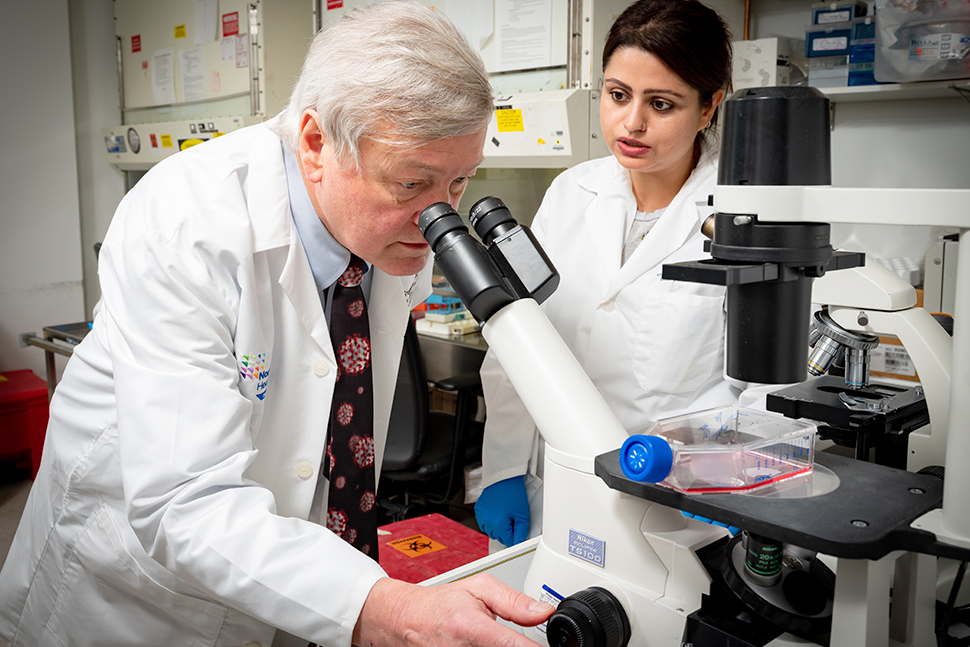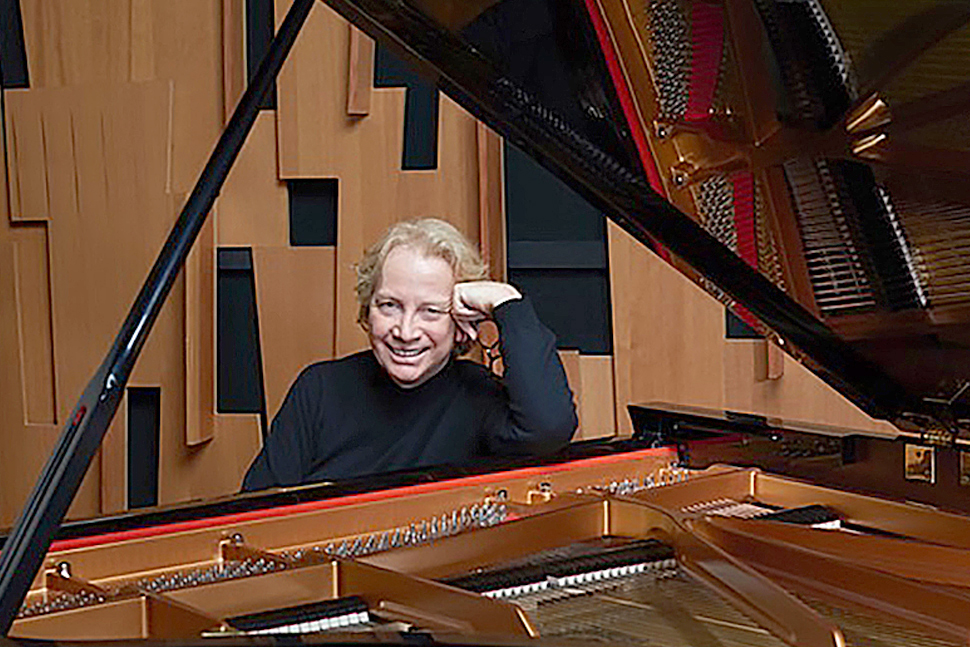Science is inching closer to understanding complex condition
March is Endometriosis Awareness Month – a condition that affects 1 in 10 women. With little known about the painful disease, many suffer on average for 8 years to get diagnosed.
Luckily, medical research is well underway to help speed up that diagnosis timeframe by using women’s menstrual blood and without the need for invasive and painful surgery. The trial, called Research OutSmarts Endometriosis or “ROSE,” is calling all women from across the nation to help enroll and supply their own sample.
That’s what Anna (26, Lake Grove NY) decided to do to tackle her endometriosis. Since she was 12, her periods were painful, long and uncomfortable. Her initial doctor kept dismissing her concerns, and she had to beg him to test for endometriosis.
The middle school gym teacher — who often had to miss multiple days of work from her endo —switched practices and decided to enroll in a clinical study at the Feinstein Institutes for Medical Research in hopes that she can be part of the cure for future generations.
What is Endometriosis?
Endometriosis occurs when endometrial tissue (normally found lining the uterus) grows outside of the uterus; endometriosis lesions are mainly found in the pelvic cavity, but can also be found in the lungs and other areas. Nearly 8.0 million women and girls suffer from endometriosis in the USA alone, and many more women and teens are likely undiagnosed. Symptoms can range from painful menstrual cramps to debilitating abdominal and pelvic pain and infertility. While the severity of endometriosis varies, the more extensive forms of the disorder can cause severe pain and disability. Approximately 40 percent of female infertility is associated with endometriosis.
But in the near future, instead of invasive, often costly-out-of-pocket diagnostic surgery, which delays treatment, soon menstrual blood could be used to diagnose the painful and complex condition.
For close to a decade, researchers at the Feinstein Institutes have been studying the use of menstrual blood to aid in diagnosis. More than 2,700 women nationwide have contributed their samples to the ROSE clinical study which has resulted in a series of research papers, and hopefully one day, a new FDA approved method of diagnosing.
Now in phase 2 (ROSE II), the second part of this clinical trial is enrolling women like Anna who have endometriosis and who are planning to get the official diagnostic laparoscopic surgery. All they have to do is supply their sample before and after the procedure.
The Manhasset Press interviewed two current study participants, Justine Casco of Farmingdale and Anna Delligatti of Lake Grove. These interviews have been edited for length and clarity.
Anton: When did you first think you might have endometriosis?
Justine Casco: I started having pelvic pain in 2021, relayed it to my GYN and they did an ultrasound that showed a right ovarian cyst. We did follow up scans and saw it was growing and not going away, so my GYN suggested I may have endometriosis. I honestly didn’t think of it because although I knew there were different severities to it, I believed endometriosis would cause me more pain and discomfort. But come 2023, I started having more pelvic pain and cramping especially during my periods, and I was eventually referred to Dr. Michael Nimaroff, my GYN who ended up doing my cystectomy.
Anna Delligatti: I had known about endometriosis prior due to family history and had suspicions at around 13/14 years old that I may have it. I was 15 when I first had endometriosis mentioned to me by my doctor and was immediately put on birth control.
A: Please describe your medical journey to reach the ROSE study.
JC: My entire journey with endometriosis and ROSE has been a brief one. I was only referred to Dr. Nimaroff about 6 months ago in September 2023, and he was the one who told me about this study and I was happy to participate in research! Someone from the ROSE study then reached out to me, and I received the box to collect my first sample prior to surgery. I had my successful ovarian cystectomy in January, and sampled tissue which confirmed my endometriosis, and just this past week I gave them my post-surgical sample.
AD: My first doctor put me on birth control when I was 15 to try to prevent the growth of endometriosis. I stayed on that birth control for 5 years where I still had problems with my period being painful and heavy. At the time, I was not in a place where I was knowledgeable enough about everything to speak up or try to switch birth controls, this to me was “normal”. My doctor retired, forcing me to switch practices and start the hunt for someone who would listen to my symptoms and take me seriously. This led to me going through 5 different doctors over a span of 5 years. Once I finally found my current doctor, she listened to me, and advocated for me by pointing me in the direction of the ROSE study. The ROSE study has been such an amazing experience and has validated my pain, fears, concerns and hopes for the future.
A: What is your hope for the outcome of this study?
JC: As someone who has only recently been affected by endometriosis, other than removing growing endometriomas/cysts, or excising the sites of endometriosis, I am not that knowledgeable in my treatment options as of yet. But I do know the ones that exist now such as birth control, and hormonal treatments do come with a bunch of side effects which put women in a tough place choosing between the pain from endometriosis, or the frustration with multiple side effects. So, with more research, I’d hope for better treatment options.
AD: I hope that this study not only brings awareness to what so many women suffer through, but also makes it more accessible for women to be diagnosed. The fact that the only way to officially diagnose endometriosis is through surgery right now means that there are many, many women not being properly treated and diagnosed, which causes more pain and suffering. Endometriosis not only takes a physical toll on the body, but a mental one as well, and being able to have answers without invasive procedures would take a lot of stress and anxiety away from the disease.
A: What message do you have for any people out there who may be experiencing endometriosis symptoms?
JC: I’m starting my journey too on figuring out the best treatment option for myself, so we’re in it together! But keep in mind we all have different cases of it and stay positive in finding the best one that works for you.
AD: Do not stop advocating for yourself ever. There are a lot of doctors out there who are not willing to listen or take you seriously, but there will be one who does. The pain you are feeling is real, it is not dramatic, and it is not normal. There is a community of people who understand you and you are not alone in your journey. Whether you are undiagnosed, diagnosed, recently had surgery, don’t have access to surgery, whatever it may be, you are seen, heard and important. Make sure to practice self-care and do things that bring you comfort and peace.
To participate in the study you must be older than 18 years and not pregnant or breastfeeding. The study is recruiting endo-diagnosed, endo-symptomatic and controls. Each participant will be asked to share medical/demographic information; answer questions about how endometriosis affects her life; provide a blood sample (from the arm); offer a sample of menstrual flow that can be collected at home using a simple procedure (this collection is optional) and allow ROSE Study researchers to collect excess endometrial tissue samples from a past or future surgery.
If you would like to learn more about how you may play a part in improving the understanding of endometriosis, please contact a research nurse at 516-562-ENDO (3636) or [email protected], or visit ResearchOutSmartsEndo.org.








